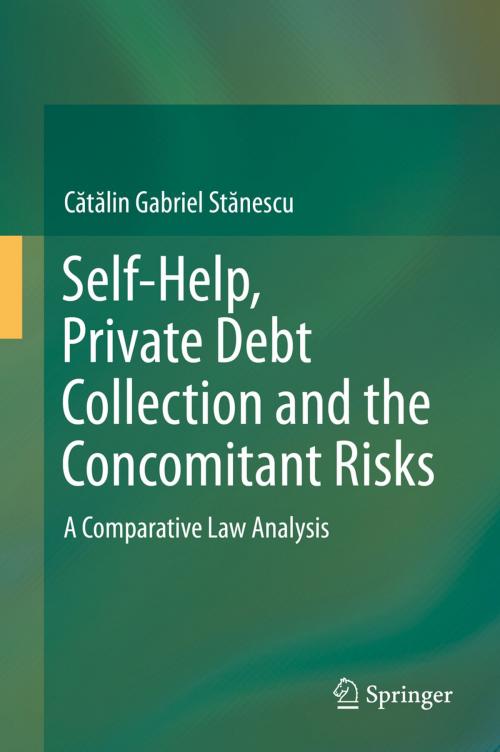Self-Help, Private Debt Collection and the Concomitant Risks
A Comparative Law Analysis
Nonfiction, Reference & Language, Law, International, Business & Finance, Finance & Investing, Finance| Author: | Cӑtӑlin Gabriel Stӑnescu | ISBN: | 9783319215037 |
| Publisher: | Springer International Publishing | Publication: | August 25, 2015 |
| Imprint: | Springer | Language: | English |
| Author: | Cӑtӑlin Gabriel Stӑnescu |
| ISBN: | 9783319215037 |
| Publisher: | Springer International Publishing |
| Publication: | August 25, 2015 |
| Imprint: | Springer |
| Language: | English |
The book shows that self-help in commercial law is a fast, inexpensive and efficient alternative to court enforcement. Self-help remedies and private debt collection are largely but not exclusively features of common law jurisdictions, since remnants of private enforcement can still be found in contract law in civilian systems. The book argues that – despite their usefulness – self-help and private debt collection entail significant risks, especially for consumer debtors. This means that private enforcement needs to be accompanied by the introduction of tailor-made consumer-debtor protection regulation. Specific attention is given to factoring, which functions in many instances as a form of pseudo-private debt collection and which has been exploited to bypass sector-specific consumer protection regulations.
The book shows that self-help in commercial law is a fast, inexpensive and efficient alternative to court enforcement. Self-help remedies and private debt collection are largely but not exclusively features of common law jurisdictions, since remnants of private enforcement can still be found in contract law in civilian systems. The book argues that – despite their usefulness – self-help and private debt collection entail significant risks, especially for consumer debtors. This means that private enforcement needs to be accompanied by the introduction of tailor-made consumer-debtor protection regulation. Specific attention is given to factoring, which functions in many instances as a form of pseudo-private debt collection and which has been exploited to bypass sector-specific consumer protection regulations.















